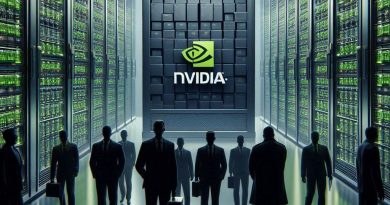Data Duel: Why Data Analytics is the Detective and Data Science is the Inventor
Introduction: The Case of the Vanishing Profits
It was a crisp Monday morning at Skyline Corp, and the finance team was in panic mode. Sales had dipped sharply. No one could explain why. The charts looked flatlined. The CEO stormed into the data room like a general in war, demanding answers. Enter two key players: a calm, calculated analyst and a wildly creative scientist.
One started sorting through the numbers like a detective scanning a crime scene. The other began sketching future possibilities, models, and simulations like an inventor in a lab. Together, they formed a dynamic duo. But their roles were as different as Sherlock Holmes and Nikola Tesla.
Welcome to the data duel, where Data Analytics plays the detective, uncovering what has happened, while Data Science wears the inventor’s hat, creating what could happen next.
Let’s unravel their distinct powers and how they complement each other in the ever-evolving world of data.
Data Analytics: The Detective with a Magnifying Glass
Imagine a seasoned detective walking into a mystery. His first instinct? Gather evidence, spot patterns, and reconstruct the crime scene. That’s exactly how data analysts work.
Data Analytics is focused on:
- Descriptive analysis – What happened?
- Diagnostic analysis – Why did it happen?
These analysts thrive on dashboards, Excel sheets, SQL queries, and historical datasets. They answer critical business questions like:
- Why did customer churn spike last quarter?
- Which product had the highest returns in June?
- What are the top-performing sales channels?
Their job is to find the truth buried in the numbers. They bring clarity to confusion and turn chaos into insight. But while analysts can solve yesterday’s mystery, they don’t always tell you what tomorrow might look like.
That’s where the inventor steps in.

Read More: Magenta by Google Is Composing the Future — One AI Beat at a Time
Data Science: The Inventor in the Lab
While data analysts are looking backward, Data Scientists are obsessed with what’s ahead. Picture a brilliant inventor surrounded by equations, code, and machine learning algorithms, dreaming up prototypes that could reshape entire industries.
Data Science is about:
- Predictive analysis – What will happen?
- Prescriptive analysis – What should we do?
Data scientists work with Python, R, TensorFlow, and complex statistical models. They train machines to forecast customer behavior, predict equipment failure, or even personalize your Netflix recommendations before you ask.
They ask questions like:
- What will customer demand look like in six months?
- How can we optimize inventory using AI?
- Can we automate fraud detection using machine learning?
While analytics brings answers, science brings possibilities. The analyst explains. The scientist imagines.
The Symbiotic Relationship
Despite their differences, data analytics and data science are not rivals. They are complementary forces, like the compass and the map in a navigator’s toolkit.
- Analytics cleans and interprets the past.
- Science builds and tests for the future.
One ensures the foundation is solid. The other ensures we can leap from that foundation.
In modern businesses, these two must work in tandem. You can’t model the future if your current data is messy. And you can’t just know what happened, you need to know what to do next.
Real-World Example: E-commerce Optimization
Let’s say an e-commerce company wants to boost sales.
- The data analyst dives into transaction history. She finds that cart abandonment spikes after 6 PM and that users drop off when shipping costs appear late in the checkout process.
- The data scientist builds a machine learning model to predict which users are most likely to abandon carts in real time and creates an AI system that dynamically offers discounts or fast shipping to retain them.
Together, they save the company millions.

Read More: Who Is a Data Scientist – And Why Are They in Such High Demand?
FAQs: Clearing Up the Confusion
Q: Is data analytics easier than data science?
A: Not necessarily. Analytics is more focused on business intelligence, while data science involves more coding and statistical modeling. Both require sharp thinking and domain knowledge.
Q: Can a data analyst become a data scientist?
A: Absolutely. Many data scientists start as analysts. Building statistical, programming, and machine learning skills is key to transitioning.
Q: Do I need both on my team?
A: Yes. A well-rounded data team should have analysts to interpret the present and scientists to build the future.
Q: Which role is more important?
A: Neither. They serve different purposes. Analytics answers why, science predicts what next. You need both to be data-driven.
Conclusion: The Dynamic Duo of Data
In the grand story of data, analytics and science are not opposing characters. One solves the puzzle of the past. The other invents what’s yet to come. When combined, they transform raw data into vision and action.
So whether you’re running a startup, managing an enterprise, or simply curious about the data universe, remember this:
Every great decision needs a detective to explain the past and an inventor to create the future.
It’s not a duel. It’s a duet.





Pingback: Why AI Might Be the Beginning of the End for Google Search - Latest AI/Tech Info
Pingback: GPS and Satellite Tech – Mapping the Modern World - Latest AI/Tech Info